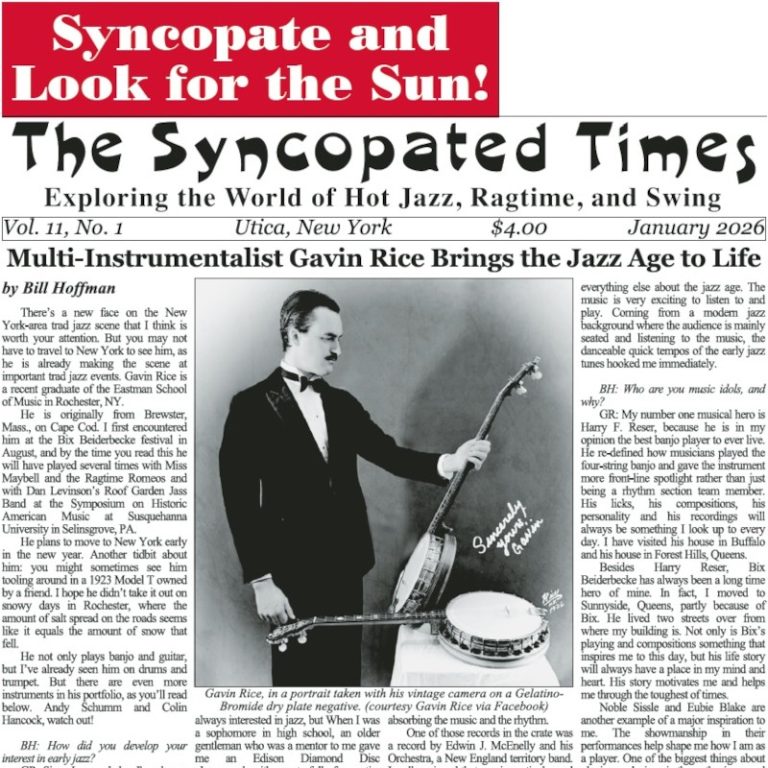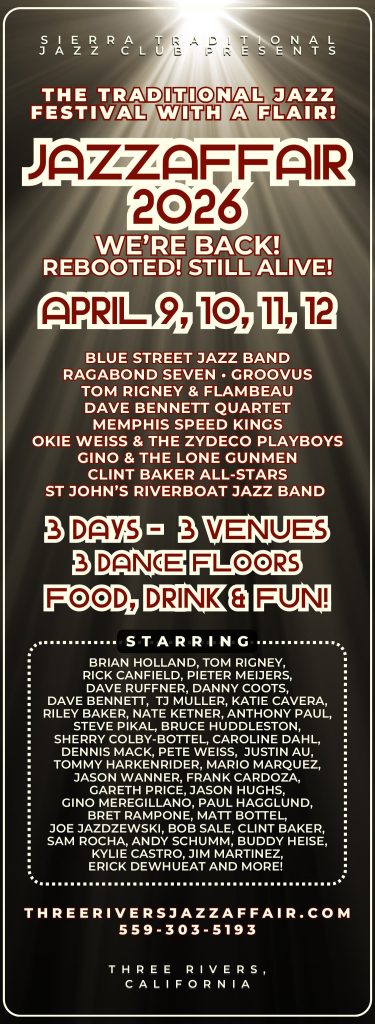Many aspirational jazz musicians make their way to New Orleans at some point—to soak up the culture they love, to undertake a musical apprenticeship or to chance their arm as a professional player, right where it all began. Award-winning vocalist Meschiya Lake and members of her Little Big Horns band—including acclaimed manouche guitarist Russell Welch—are prominent examples of this modern musical migration, which takes advantage of the 19 million jazz-loving tourists who visit the city every year.
Historically, however, the trend was for players born in The Big Easy to take their craft elsewhere—Sidney Bechet, Jelly Roll Morton, and King Oliver all went to Chicago, Louis Armstrong made his way from there to New York and Wingy Manone ended up in Las Vegas, for instance. But it might surprise some to know that New Orleans still exports jazz talent, some of which is washing up on British shores. Joplin Parnell is one example—although he was no professional when he arrived here. In fact, he learned his trade in Denmark from a man born in Dallas who made his name as an electronic musician.
“My father was a jazz pianist called Phil Parnell,” said Joplin, who has lived in London long enough to sound like a local. “He was born in Dallas but raised in New Orleans, where I was born.” Joplin’s mum was an audio mastering engineer, working with artists including UK big beat
You've read three articles this month! That makes you one of a rare breed, the true jazz fan!
The Syncopated Times is a monthly publication covering traditional jazz, ragtime and swing. We have the best historic content anywhere, and are the only American publication covering artists and bands currently playing Hot Jazz, Vintage Swing, or Ragtime. Our writers are legends themselves, paid to bring you the best coverage possible. Advertising will never be enough to keep these stories coming, we need your SUBSCRIPTION. Get unlimited access for $30 a year or $50 for two.
Not ready to pay for jazz yet? Register a Free Account for two weeks of unlimited access without nags or pop ups.
Already Registered? Log In
If you shouldn't be seeing this because you already logged in try refreshing the page.




